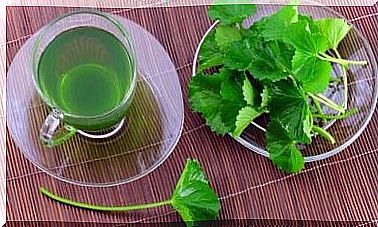Five Plant-based Sources Of Omega-3 Fatty Acids

Omega 3 fatty acids are polyunsaturated fats and together with omega 6 fatty acids form the so-called essential fatty acids. They get their name from the fact that they are essential to the body, although it cannot produce them on its own.
This means that we have to get these fatty acids from the food we eat. Fortunately, there are many plant sources that contain it.
The benefits of omega 3 fatty acids

The properties of omega 3 fatty acids benefit the body in many essential ways. Some of these properties are for example:
- They have anti-inflammatory properties.
- It increases the production of HDL (good cholesterol) and the elimination of LDL (bad cholesterol). This hinders the formation of atheroma plate or plaque on the arterial walls.
- They lower triglyceride levels.
- These fatty acids also help lower blood pressure.
- In children, they play an important role in brain maturation and growth.
- Omega 3 fatty acids protect against many diseases such as diabetes, stroke, some cancers and ulcerative colitis.
- They have anticoagulant properties.
- They reduce the symptoms associated with rheumatoid arthritis.
Nevertheless, its daily dosage has yet to be established. However, it should be noted that some studies have shown that one gram per day significantly reduces cardiovascular risk.
Five plant-based sources of omega-3 fatty acids
Below we highlight the nutritional value of five plant-based sources of omega-3 fatty acids that you should include in your diet to enjoy good health and potentially prevent various diseases. However, remember that there are many more plant sources than the ones we mention here.
1. Flaxseed Oil and Olive Oil

Flaxseed oil consists of 75% omega-3 fatty acids and 25% omega-6 fatty acids. It is a very important food for prostaglandin metabolism as these nutrients help regulate inflammation.
Olive oil also helps people meet their needs for polyunsaturated fats. It is very simple and healthy to add a dash of olive oil to your bread for breakfast or through a salad during your lunch.
2. Microalgae
Microalgae are forms of small algae, such as Chlorella. Chlorella is the richest algae in omega 3 fatty acids, followed by spirulina and klamath, although it is only taken in small doses. In addition to being rich in these nutrients, these algae also have important antioxidant effects.
3. Nuts: One of the most important plant sources of omega-3 fatty acids
Nuts have a balanced ratio of 5:1 between omega 3 fatty acids and omega 6 fatty acids. For example, if you consume 14 nuts (about 16 grams), this already accounts for 50% of the daily requirement.
4. Chia seeds

Chia seeds are another important plant source of omega 3 fatty acids, along with flaxseed. They contain 33% fat (62% omega 3 and 20% omega 6). However, keep in mind that you must soak these seeds before consuming them.
Many people, especially vegetarians, have started including them in their diets. For example, this product, which was first sold in health food stores and specialty stores, is now also easy to find in supermarkets.
5. Avocados are also healthy plant sources of omega 3 fatty acids
Avocados are becoming more and more popular. Some diets focus a lot on this food because of its nutritional values, because they contain a little bit of everything. They are also one of the main plant sources of omega 3 fatty acids.
In fact, some neurological specialists consider them one of the best foods to keep the brain healthy and help prevent Alzheimer’s disease.
Conclusion
All of these plant-based sources of omega-3 fatty acids can help you meet the World Health Organization’s intake recommendations. It is important to remember that certain segments of the population are more susceptible to deficiency, such as children whose brains are still developing.
Therefore, make sure that foods rich in omega 3 fatty acids are included in everyone’s diet for good health and to help prevent future diseases.








